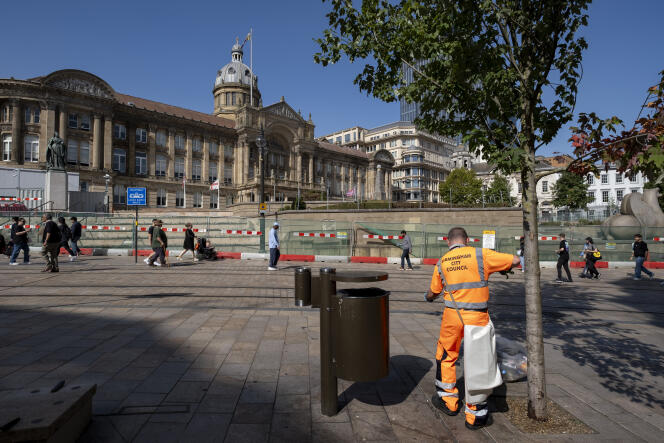


Every hour, in the heart of New Street, Birmingham's main railway station, a 10-meter-high articulated metal bull named Ozzy delights passers-by. The statue was the mascot for the Commonwealth Games held in 2022 in the capital of the West Midlands (population 1.1 million) in the UK.
The sporting event, which brought together athletes from 56 Commonwealth nations (mostly former colonies of the British Empire), was considered a popular success in an otherwise low-key city. At the time, Ian Ward, the city council's Labour leader, heralded the start of a "golden decade" for this former industrial city now focused on trade and financial services.
"You know, we had a big party, and now we've got a big hangover thing," sighed Ewan Mackey, deputy leader of the Conservative opposition on the Labour-led council. On September 5, the executive body of Europe's largest local authority shocked everyone by declaring itself bankrupt, unable to meet its forthcoming bills. The expected deficit for the 2023-2024 financial year is £87.4 million (around €101 million). An extraordinary council meeting was scheduled for Monday, September 25, at which the new head of the local executive, Labour's John Cotton (who took office in the spring), is expected to present a rescue plan.
"The council built an athlete's village, spent £500 million on it, and it never housed one single athlete," explained Mackey, speaking from his office in Council House, Birmingham's imposing 19th-century town hall. "The houses in the athlete's village are so expensive that the council is struggling to sell it, because all the other houses are a lot cheaper. For the council, instead of focusing on equal pay, they were completely distracted for a year by the Commonwealth Games." He explained that the financial crisis was mainly due to "incompetence," including the "fiasco" of an Oracle management software package that was supposed to cost £19 million, but will now cost £100 million to roll out across city services.
There is also a long-running dispute between the council and the unions over equal pay, which could prove very costly to resolve. Some 3,000 female council employees – from school assistants to kitchen helpers – have lodged complaints about pay discrimination, demanding to be paid the same as men for equivalent responsibilities. They are likely to win their case in court, and the council has had to accept that compensation could amount to £760 million.
"We discovered that to end a strike in 2017, a group of workers in the refuse collection department got a deal to work significantly reduced hours, so they work around 25 hours or less full time, but are still being paid 37 hours a week. There is a massive difference with other workers working in social care for example, who are predominantly women," pointed out Stuart Richards, a leader of the Midlands branch of the GMB union, which represents female municipal employees.
You have 70.87% of this article left to read. The rest is for subscribers only.
